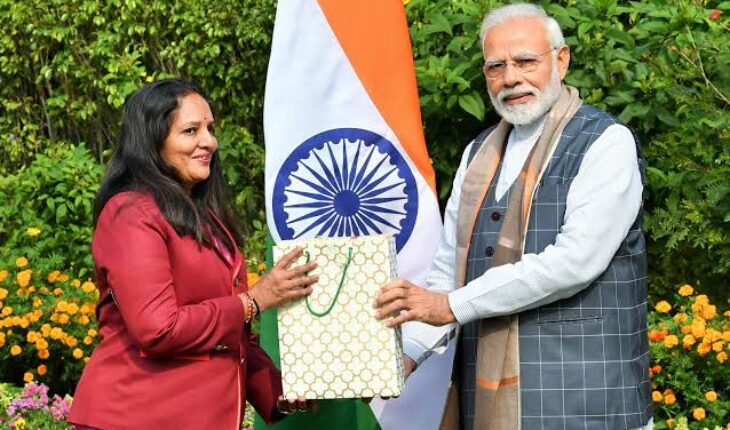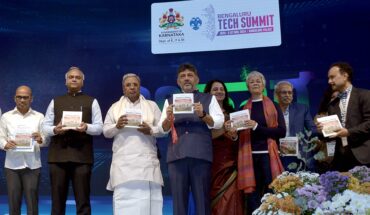New Delhi— As India progresses towards its $5 trillion economy dream, it is imperative that each participant equally contributes, and the benefits of economic growth reach all. To ensure the country’s progress is inclusive and no one is left behind, 50% of the population, which is women, have to be empowered, ensuring their financial and digital inclusion so they become equal contributors and help realize this dream.
Taking steps in this direction is Dr. Kalpana Sankar, Chairperson and Managing Trustee of Hand in Hand India, who, in an interaction with The Financial World, shares how under her leadership, the organization has provided financial inclusion to 4.15 million households by creating 112,335 women enterprises and impacted the lives of 1.5 million women in Tamil Nadu, for a better future.
1. Can you share with us the journey of transitioning from a nuclear scientist to a champion of social development?
I am a scientist with a doctorate in Nuclear Physics. I took up my first job at Cancer Institute, Chennai. As much as I wanted to work with people who were ailing, I knew that I was not cut out for a job in radiation therapy. This journey bolstered my commitment to serve others and fuelled my determination to create positive change. I joined the Women’s Development Corporation of Tamil Nadu Government and worked on the initial proposal for the TN World Bank Poverty Eradication Project. Later I was given an opportunity to work with Hand in Hand at the grassroots level. It gave me a lens to the other side of poverty and there has been no looking back.
0. What inspired this shift in focus, and how has your background influenced your approach to addressing social issues?
My interactions with the poor while heading Red Cross in Coimbatore and through my extensive experience working with the Government of Tamil Nadu exposed me to a different reality about poverty in India. This gave me the grounding to do social work. I also knew I had to tap into my scientific temper to create an institution that was different from others. My specialisation was in gender and microfinance, and I knew this would be the fulcrum that would bring communities out of poverty. These aspects make my work and approach different.
0. Hand in Hand India has achieved remarkable success in empowering rural women and creating job opportunities. What innovative models or strategies have been instrumental in achieving these outcomes, and how do you envision scaling these efforts for even greater impact?
We established our job creation and entrepreneurship model way back in 2004. We had our focus on forming self-help groups, encouraging savings, small scale entrepreneurship and then access to credit. Aside from financial literacy training, we include digital and financial literacy as a separate module. We conduct awareness camps on social security schemes and connect women to suitable Government schemes. We understand that the women need to grow from micro to macro entrepreneurs or as the Government of India now calls it, Lakhpathi Entrepreneurs – so to do this we have business development training with courses developed by IIT Madras. We encourage market linkages through mobile applications and social media for more reach for these entrepreneurs. To take these models to the next level, we have federated women in self-help groups to cluster level networks where they are bringing about change at the community level.
Q: What advice would you give to individuals and organizations striving to make a positive difference in society, especially in rural areas?
My advice to other organisations and individuals striving to make a difference is to always think long-term and make a long-term plan. When we work with communities and people, we need to keep their requirements in mind – a participatory approach is needed as they are the champions for the initiatives once we exit. Always do small pilots, learn from them and then scale. Invest in good resources and have clarity in project implementation with good monitoring systems in place. Finally, never give up. Like in any business, this sector will also have its challenges. We have to learn to take them in our stride and keep moving forward.





